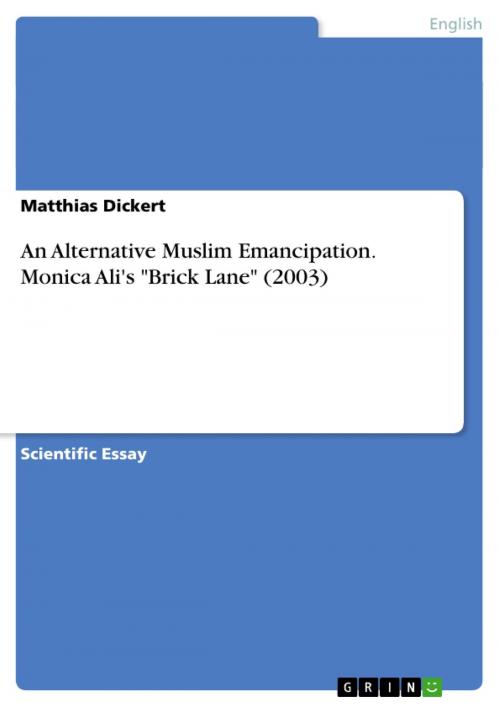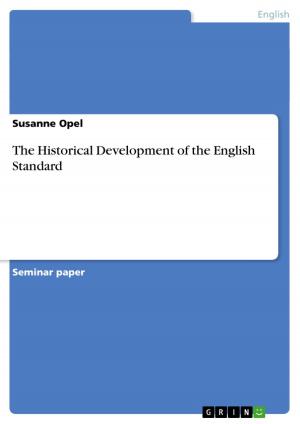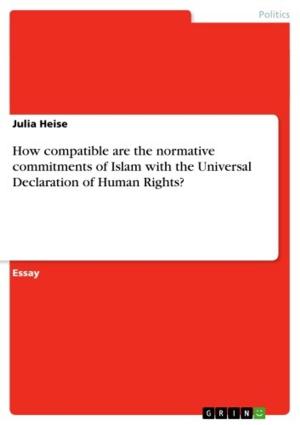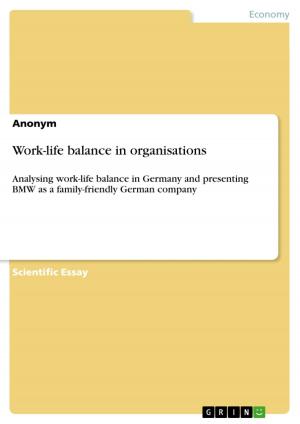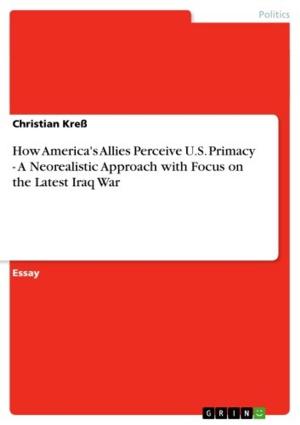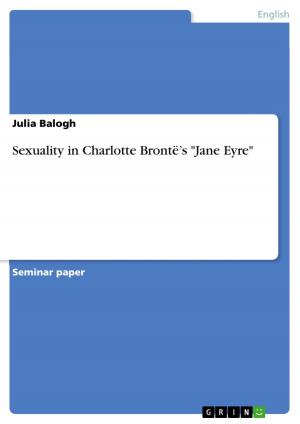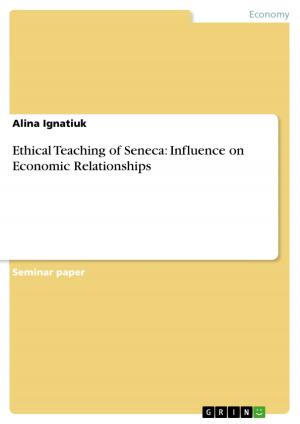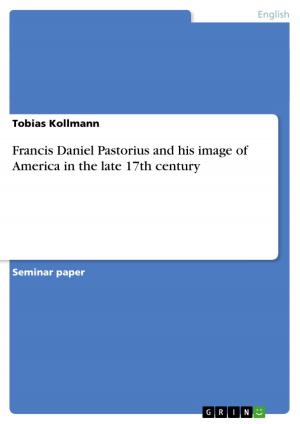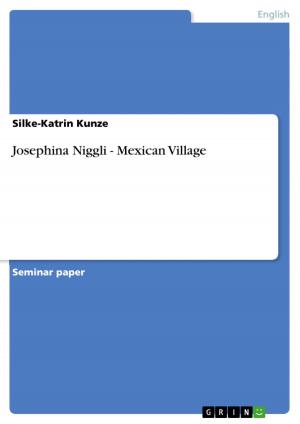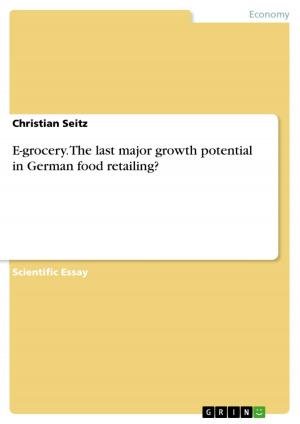An Alternative Muslim Emancipation. Monica Ali's 'Brick Lane' (2003)
Fiction & Literature, Literary Theory & Criticism, British| Author: | Matthias Dickert | ISBN: | 9783656874386 |
| Publisher: | GRIN Publishing | Publication: | January 13, 2015 |
| Imprint: | GRIN Publishing | Language: | English |
| Author: | Matthias Dickert |
| ISBN: | 9783656874386 |
| Publisher: | GRIN Publishing |
| Publication: | January 13, 2015 |
| Imprint: | GRIN Publishing |
| Language: | English |
Scientific Essay from the year 2015 in the subject English Language and Literature Studies - Literature, Comenius University in Bratislava (Anglistik/Amerikanistik), language: English, abstract: Monica Ali's novel Brick Lane (2003) marked her literary breakthrough. Ali hereby followed the tradition of Salman Rushdie and Hanif Kureishi who had placed Islam back into the English speaking novel thus showing that the contemporary English novel is (still) heavily influenced by migrant writers coming from the former colonies. These writers share a double vision of England simply because they are insiders and outsiders at the same time. Their characters therefore are very convincing and they introduce Islam to the (Western) reader, a religion which for such a long time has been presented in a stereotyped and thus negative way. Ali -like Rushdie and Kureshi - also uses London as the place of action and thus uses the literary concept of the 'postcolonial city'. Her description of the integration of a Muslim woman into British society also follows the notion of the 'condition of England novel' which confronts outer developments with human value. Ali's main achievement, however, lies in her image of a Muslim woman who picks up the West as a chance. Ali here differs from male Muslim writers who too often confront the reader with the failure of their (male) characters. It is exactly here where Ali's concept of a Muslim woman seems to have been a frontrunner for other Muslim writers to follow. Writers like Leila Abdoulela (Minaret 2005), Tahmima Anam (A Golden Age 2007); The Good Muslim 2011), Fadia Faquir (My Name is Salma 2007) followed Ali in their presentation oft he female thus showing a different kind of female Muslim identity.
Matthias Dickert, geb. 1955, ist von Beruf Gymnasiallehrer (Englisch, Sport, katholische Religion). Studium an der Philipps Universität/Marburg und Durham University (GB). Forschungsschwerpunkt: Migrationssoziologie/ Islamische Autorinnen und Autoren im gegenwärtigen englischen Roman. Zahlreiche Veröffentlichungen (z.B. Blickpunkt der Forschung, Zeitschrift für Interdisziplinäre ökonomische Forschung, GRIN Verlag); Vorträge an europäischen Hochschulen. Doktorarbeit über das Thema Islam, Islamic Fundamentalism and the Question of Identity in Muslim Writing.
Scientific Essay from the year 2015 in the subject English Language and Literature Studies - Literature, Comenius University in Bratislava (Anglistik/Amerikanistik), language: English, abstract: Monica Ali's novel Brick Lane (2003) marked her literary breakthrough. Ali hereby followed the tradition of Salman Rushdie and Hanif Kureishi who had placed Islam back into the English speaking novel thus showing that the contemporary English novel is (still) heavily influenced by migrant writers coming from the former colonies. These writers share a double vision of England simply because they are insiders and outsiders at the same time. Their characters therefore are very convincing and they introduce Islam to the (Western) reader, a religion which for such a long time has been presented in a stereotyped and thus negative way. Ali -like Rushdie and Kureshi - also uses London as the place of action and thus uses the literary concept of the 'postcolonial city'. Her description of the integration of a Muslim woman into British society also follows the notion of the 'condition of England novel' which confronts outer developments with human value. Ali's main achievement, however, lies in her image of a Muslim woman who picks up the West as a chance. Ali here differs from male Muslim writers who too often confront the reader with the failure of their (male) characters. It is exactly here where Ali's concept of a Muslim woman seems to have been a frontrunner for other Muslim writers to follow. Writers like Leila Abdoulela (Minaret 2005), Tahmima Anam (A Golden Age 2007); The Good Muslim 2011), Fadia Faquir (My Name is Salma 2007) followed Ali in their presentation oft he female thus showing a different kind of female Muslim identity.
Matthias Dickert, geb. 1955, ist von Beruf Gymnasiallehrer (Englisch, Sport, katholische Religion). Studium an der Philipps Universität/Marburg und Durham University (GB). Forschungsschwerpunkt: Migrationssoziologie/ Islamische Autorinnen und Autoren im gegenwärtigen englischen Roman. Zahlreiche Veröffentlichungen (z.B. Blickpunkt der Forschung, Zeitschrift für Interdisziplinäre ökonomische Forschung, GRIN Verlag); Vorträge an europäischen Hochschulen. Doktorarbeit über das Thema Islam, Islamic Fundamentalism and the Question of Identity in Muslim Writing.
